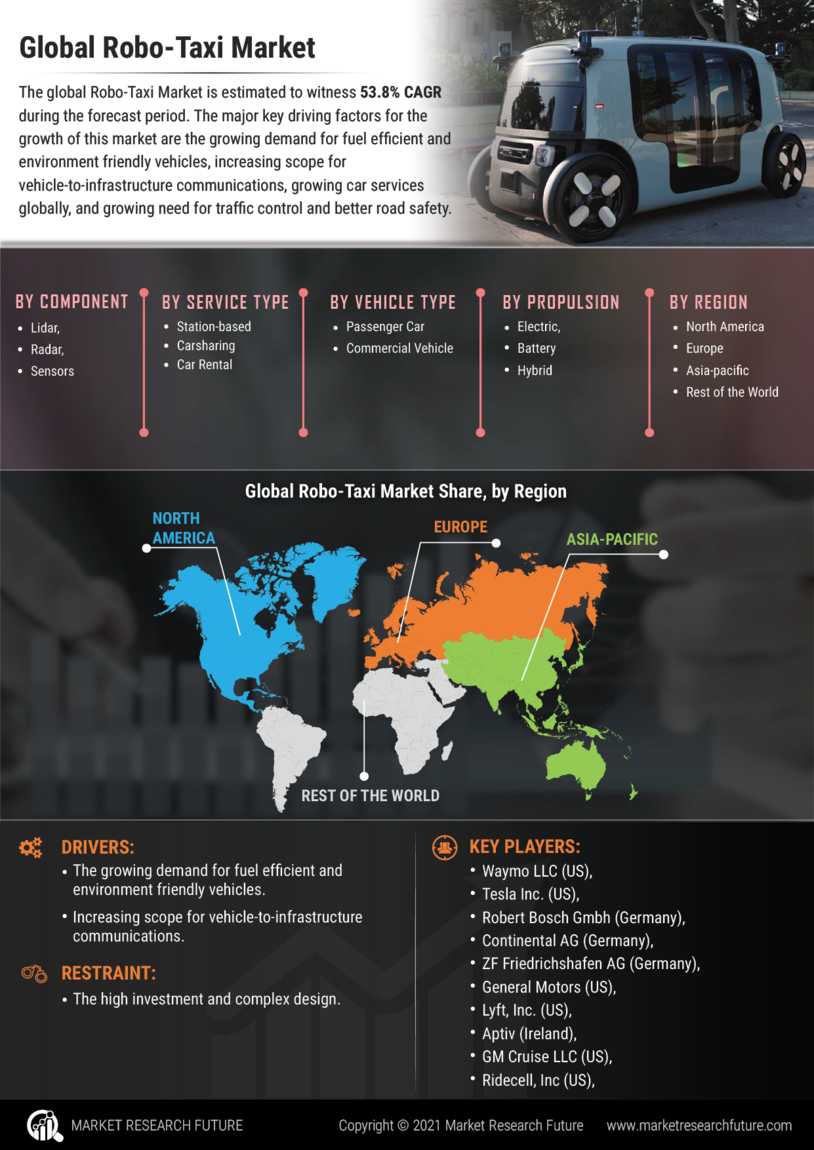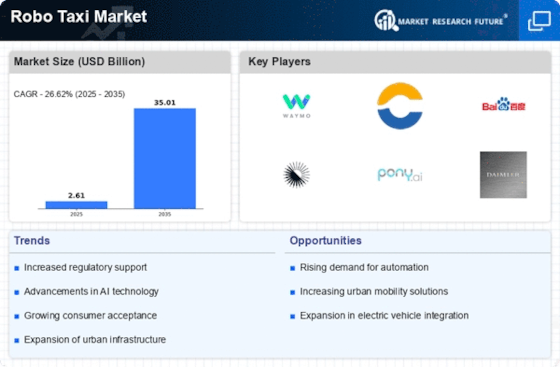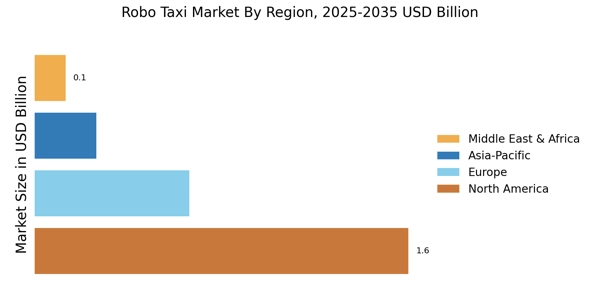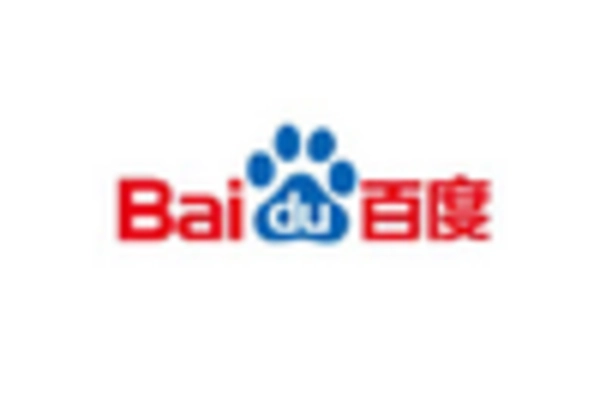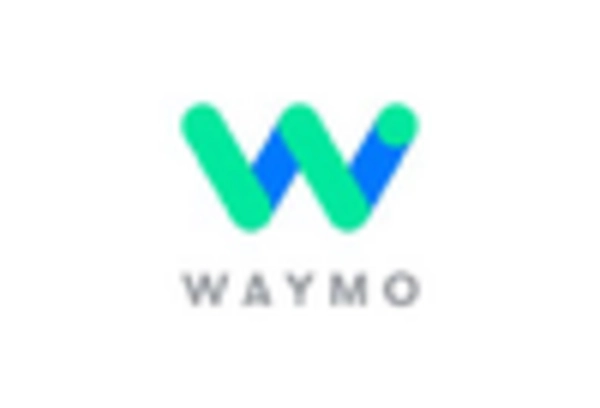Changing Consumer Attitudes Towards Mobility
Consumer attitudes towards mobility are shifting, significantly impacting the Robo Taxi Market. Increasing urbanization and a growing preference for shared mobility solutions are driving demand for robo taxis. Recent surveys indicate that a substantial percentage of consumers are open to using autonomous vehicles for their daily commutes, citing convenience and cost-effectiveness as primary motivators. The rise of ride-sharing platforms has also contributed to this trend, as consumers become more accustomed to on-demand transportation services. As attitudes continue to evolve, the Robo Taxi Market is likely to benefit from a broader acceptance of autonomous vehicles, leading to increased usage and investment in this sector.
Regulatory Developments and Urban Integration
The regulatory landscape surrounding the Robo Taxi Market is evolving, with governments worldwide recognizing the potential benefits of autonomous vehicles. Recent legislative efforts aim to create frameworks that facilitate the safe integration of robo taxis into urban environments. For example, cities are beginning to establish designated lanes and zones for autonomous vehicles, which could enhance traffic flow and reduce congestion. Furthermore, regulatory bodies are working on safety standards and operational guidelines that ensure the safe deployment of these vehicles. As of 2025, several regions have initiated pilot programs to test robo taxi services, indicating a growing acceptance of this technology. These regulatory developments are crucial for the Robo Taxi Market, as they provide the necessary infrastructure and legal backing for widespread adoption.
Technological Advancements in Autonomous Driving
The Robo Taxi Market is experiencing rapid technological advancements that enhance the capabilities of autonomous vehicles. Innovations in artificial intelligence, machine learning, and sensor technologies are driving the development of safer and more efficient robo taxis. For instance, the integration of LiDAR and computer vision systems allows for improved navigation and obstacle detection. According to recent data, the market for autonomous vehicle technology is projected to reach USD 60 billion by 2030, indicating a robust growth trajectory. These advancements not only improve the operational efficiency of robo taxis but also bolster consumer confidence in their safety and reliability. As technology continues to evolve, the Robo Taxi Market is likely to witness increased adoption rates, further solidifying its position in the transportation sector.
Environmental Sustainability and Emission Reduction
The push for environmental sustainability is a significant driver for the Robo Taxi Market. As concerns about climate change intensify, there is a growing demand for eco-friendly transportation solutions. Robo taxis, particularly those powered by electric or hybrid technologies, offer a promising alternative to traditional vehicles, potentially reducing greenhouse gas emissions. Data suggests that the adoption of electric robo taxis could lead to a reduction of up to 50% in urban transportation emissions by 2030. This aligns with global efforts to promote sustainable urban mobility and reduce reliance on fossil fuels. Consequently, the Robo Taxi Market is likely to see increased investment and innovation aimed at developing environmentally friendly autonomous vehicles.
Investment and Partnerships in the Robo Taxi Ecosystem
Investment in the Robo Taxi Market is surging, driven by a combination of venture capital, corporate partnerships, and government funding. Major automotive manufacturers and technology companies are increasingly collaborating to develop and deploy autonomous vehicle technologies. Recent reports indicate that investments in autonomous vehicle startups have reached over USD 10 billion in 2025 alone, highlighting the growing interest in this sector. These partnerships not only accelerate technological advancements but also facilitate the establishment of comprehensive ecosystems that support the deployment of robo taxis. As investment continues to flow into the Robo Taxi Market, it is expected that innovation will thrive, leading to enhanced services and broader market penetration.
